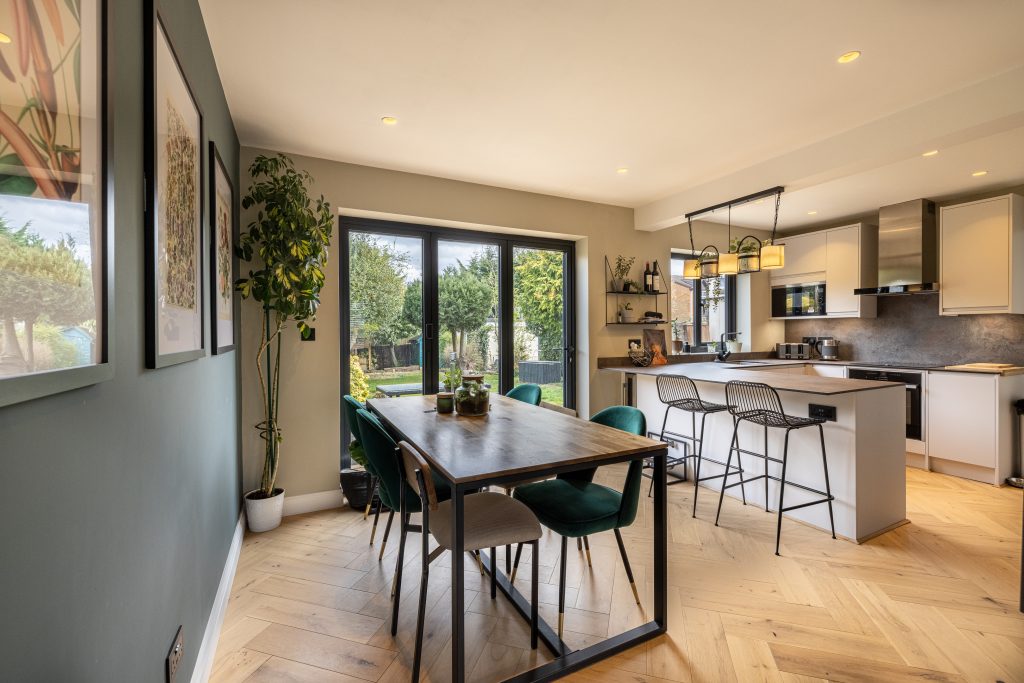Are you planning a home extension and eager to bring your dream home to life? Hiring the right builder is a crucial step towards achieving your vision. However, with numerous factors to consider and potential pitfalls to avoid, you’ll need to know the essential do’s and don’ts of hiring a builder for your extension project. To help you find the perfect builder, we’ve put together our top do’s and don’ts.
We’ll explain why it’s important to take the time to conduct research and seek recommendations from trusted sources, whether these be word-of-mouth referrals from friends and family or online reviews from previous customers. Patience is key when it comes to hiring a builder. So, we’ll explain why resisting the urge to rush through the process is crucial and why hasty decisions could lead to regrets later.
We’ll also explain why it’s important to ensure that any builder you consider has the necessary licenses, certifications, and insurance to carry out building work. Verifying their credentials first safeguards you against potential risks and ensures you work with professionals who meet industry standards.
A builder’s past work experience and portfolio provide a window into their expertise and craftsmanship. We’ll delve into why it’s essential to review their completed projects, assess their style, and visit sites if possible. Finally, we’ll look at the importance of requesting detailed quotes from builders and why a comprehensive quote allows for effective comparison. Also, ensuring you have a detailed contract covering the project scope, timeline, and payment terms.

Do: Research and Gather Recommendations
Researching and gathering recommendations is integral to finding the right builder for your home extension project. Taking the time to conduct thorough research and seek recommendations will increase your chances of hiring a reliable, skilled builder who can bring your vision to life.
Start by contacting friends, family, and neighbours who have recently undertaken similar projects. Their personal experiences and recommendations can provide valuable insights into the builders they worked with. Ask about their overall satisfaction, the quality of workmanship, adherence to timelines, and communication throughout the process.
Additionally, explore online resources and review platforms dedicated to the construction industry. Websites like Yelp, Houzz, and Google Reviews can offer valuable information and feedback from previous customers. Pay attention to both positive and negative reviews to gain a well-rounded perspective.
As you gather recommendations, list potential builders who consistently receive positive feedback. Remember, this research phase aims to gather a comprehensive understanding of a builder’s reputation and craftsmanship. By combining word-of-mouth referrals, online reviews, and testimonials, you can build a strong foundation of knowledge that will guide your decision-making process.

Don’t: Rush the Hiring Process
The temptation to rush through the hiring process for a builder can be strong, especially when you’re eager to get your extension project underway. However, it’s crucial to resist this urge and carefully consider the process. Evaluating multiple builders will pay off in the long run, ensuring you hire the right professional.
Building a home extension is a significant investment, both financially and emotionally. Rushing the hiring process increases the likelihood of making hasty decisions based on incomplete information. By taking your time, you can prioritise quality over speed, ensuring you select a builder who meets your expectations and has a proven track record of delivering exceptional results.
Evaluating multiple builders allows you to compare their credentials, expertise, and experience. Each builder will bring unique skills and specialities to the table. By reviewing their portfolios and customer testimonials, you can gain insight into their capabilities and determine if their style and quality align with your vision. This evaluation process ensures you make an informed decision rather than settling for the first available option. By obtaining quotes from multiple builders, you can compare pricing, project timelines, and the scope of work included in each proposal.

Do: Check Licenses, Certifications, and Insurance
When hiring a builder, one of the most critical steps you must take is to check their licenses, certifications, and insurance. This crucial step ensures that you engage with professionals who meet industry standards, have the required expertise, and can protect you from potential liabilities.
Checking if a builder holds valid licenses is fundamental to ensuring their credibility and legitimacy. These licenses may include demonstrating technical competence, building code adherence, and safety standards compliance. Verifying licenses helps you confirm that the builder has the necessary qualifications and has undergone the training to handle your home extension project.
Beyond licenses, certifications and affiliations with professional organisations indicate a builder’s expertise and commitment to maintaining high standards. Look for certifications relevant to the construction industry, such as those related to specialised skills or building practices. Affiliations with reputable associations or guilds further demonstrate a builder’s commitment to professional development.
Checking a builder has adequate insurance coverage is crucial for your protection and peace of mind. Construction work involves risks, and accidents or unforeseen events can occur during the project. Builders should have liability insurance to cover any damages or injuries that may arise on the job site. Request proof of insurance and ensure it is current before finalising any agreements with a builder.

Don’t: Overlook Past Work Experience and Portfolio
A builder’s portfolio and track record of previous projects provides valuable insights into their expertise, craftsmanship, and ability to bring your vision to life. Reviewing a builder’s portfolio allows you to gauge their level of expertise and assess whether they have the skills and knowledge necessary to handle your project. Look for projects similar in scale, scope, and complexity to get a sense of their experience in dealing with projects of a similar nature.
Each builder has a unique style and approach to their work. By examining their portfolio, you can gain insights into their design sensibilities, attention to detail, and overall quality of workmanship. Look for consistency in their completed projects’ finishes, materials used, and overall aesthetic appeal. This evaluation will help you determine if their style aligns with your preferences and if they can deliver the craftsmanship you desire for your home extension.
A builder’s portfolio shows their ability to complete projects. Look for indications of project completion, such as before-and-after photos or testimonials from previous customers. Reach out to some of their past customers to gather firsthand feedback on their experience working with the builder.
Visit completed projects or ongoing construction sites to see the builder’s work firsthand whenever feasible. Walking through these spaces allows you to observe the quality of materials used, the precision of their craftsmanship, and their attention to detail. It also provides an opportunity to interact with the builder’s team, ask questions, and assess their professionalism and communication skills.

Do: Request Detailed Quotes and Contracts
By requesting a detailed quote from each builder, you clearly understand the costs involved in your project. The quote should itemise expenses, such as labour, materials, permits, and additional fees or contingencies. This breakdown enables you to compare quotes objectively and make an informed decision based on the value provided by each builder. It also helps you avoid any potential hidden costs or surprises.
A comprehensive quote should outline the scope of work for your home extension project, detailing the specific tasks, milestones, and deliverables. This clarity helps prevent misunderstandings and ensures you and the builder have a shared understanding of the project’s objectives. Additionally, the quote should include a projected timeline, providing an estimate of how long the construction process is expected to take.
Detailed quotes should include the proposed payment terms and milestones. Understanding when and how payments will be made throughout the project is crucial. Payment terms may vary, but common approaches include upfront deposits, progress payments based on completed stages, and a final payment upon project completion. Clear payment terms help establish a fair and mutually beneficial arrangement.
A comprehensive contract is essential to protect both you and the builder. It should cover crucial aspects such as project scope, timeline, payment terms, and any warranties or guarantees the builder provides. The contract serves as a legally binding agreement that outlines the rights and responsibilities of each party.
Ensure you thoroughly review and understand the terms and conditions before proceeding. If any aspect seems unclear, don’t hesitate to seek clarification from the builder or consult with a legal professional to ensure your interests are protected.

































